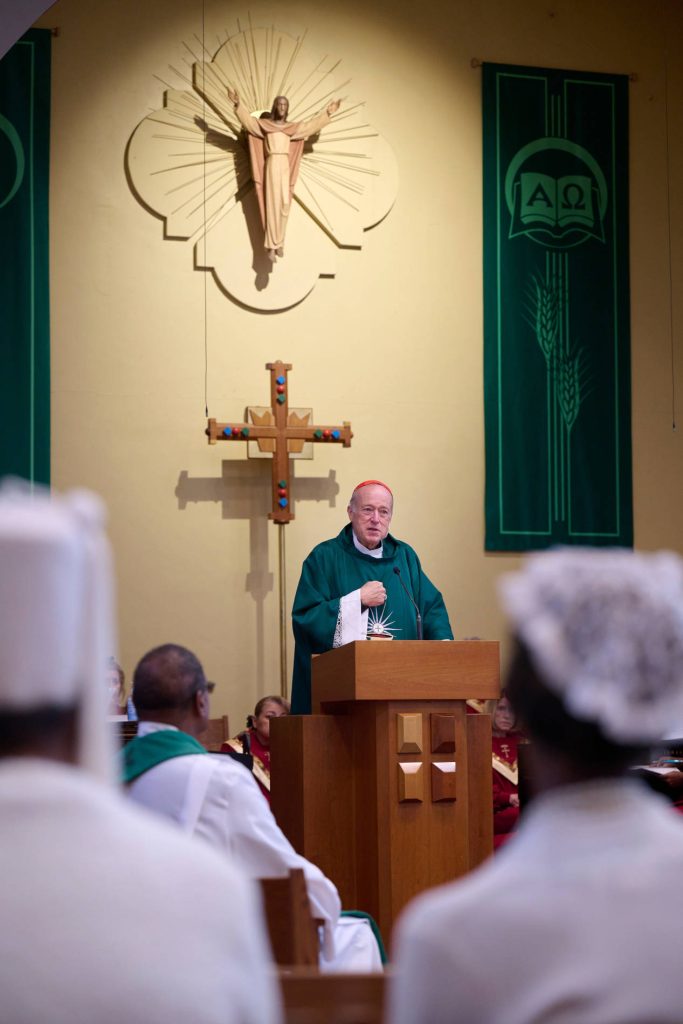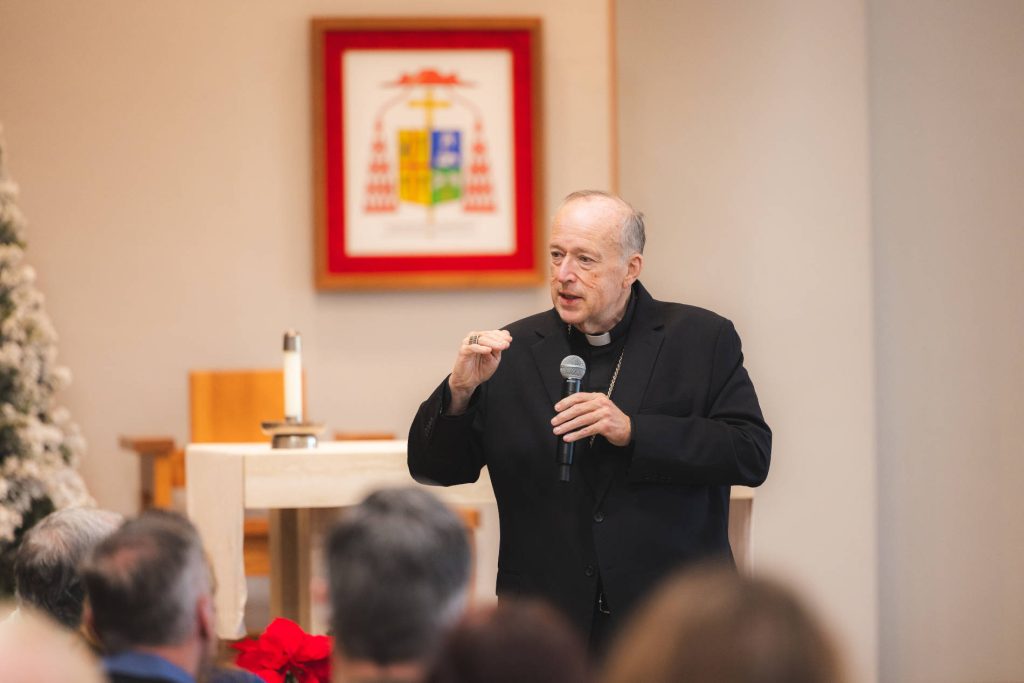By Cindy Wooden
VATICAN CITY — If members of the Synod of Bishops are serious about sharing their experience of “synodality” with all members of the Catholic Church, then they must identify concrete ways to do so, Cardinal Jean-Claude Hollerich told members.
“If we keep this treasure only for ourselves, we transform it into a privilege” rather than a service to the whole Church, Cardinal Hollerich, the synod relator general, told members Oct. 15 as they began discussing the third and final part of the synod’s working document.
Titled “places,” the section focused on promoting synodality –– listening to each other more attentively and cooperating more readily –– “from the perspective of the places that are the tangible contexts for our embodied relationships, marked by their variety, plurality and interconnection, and rooted in the foundation of the profession of faith, resisting human temptations to abstract universalism.”
Cardinal Hollerich said the challenge is to make sure members of the Church who are not present in the synod hall can experience synodality “not only through our recounting it, but through the renewal of our churches.”
“The aim of our work in the coming days,” he said, “is to propose instruments that make that easier.”
The 368 synod members discussed the “places” section of the working document through the morning of Oct. 18. The members include Cardinal Robert W. McElroy, bishop of the Diocese of San Diego. The final week of the synod was devoted to discussing, amending and approving a final document from the gathering, which was to end on Oct. 27.
Before Cardinal Hollerich’s introduction, Benedictine Mother Maria Ignazia Angelini, a theologian and spiritual adviser to the synod, encouraged synod members to recognize how faith always is lived in a concrete place with specific cultural influences, but also how Jesus broke through rigid walls of place, class and culture.
“If the ‘place’ of the Church is always a concrete space-time of gathering, the journey of the Gospel in the world goes from threshold to threshold: It shuns being static, but also any ‘holy alliance’ with the cultural contexts of the age,” she said. “It inhabits them and is led by its life principle –– the Spirit of the Lord –– to transcend them.”
“We all need to feel a sense of belonging,” Cardinal Hollerich said, “but this need is met through relationships” that are less tied to a specific place –– for instance, a parish –– than they were in the past, especially if one considers relationships formed and maintained primarily online.
“What does this mean for the fulfillment of our mission of proclaiming the Gospel?” the cardinal asked synod members. “In what ways must we rethink our institutions ‘in the logic of missionary service,’ which takes place in a different context than in the past? What institutional and organizational forms need to be changed and how?”
Follow updates from the synod in Rome at thesoutherncross.org.









